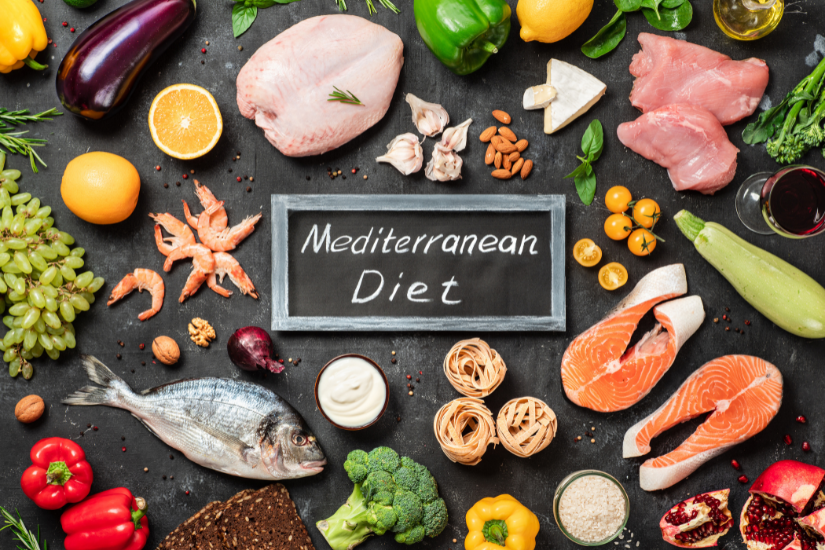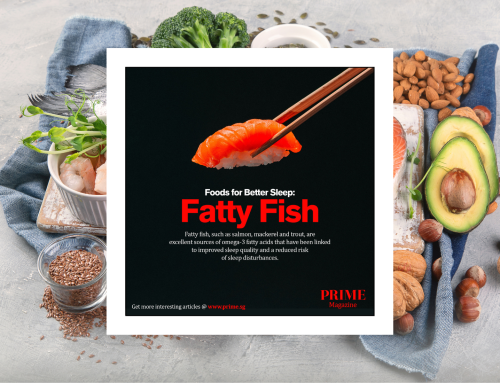
The Mediterranean diet is a diet that adopts the traditional healthy eating habits of those living in the region around the Mediterranean Sea. It appreciates the cooking methods, synergistic combinations of food ingredients and dining as a family or community. It recommends an array of healthy food ingredients:
– High consumption of fresh veggies, fruits, herbs & spices
– Replace refined carbohydrates with wholegrains
– Use extra-virgin olive oil or canola oil in food preparation
– Consume more fishes (especially fatty fishes), seafood, legumes and pulses
– Limit meat/meat products and low consumption of dairy products
– Moderate wine consumption (not more than two 5-oz glasses and one 5-oz glass per day for men and women respectively)
For instance, a typical Mediterranean dish would be salmon sautéed with colourful vegetables in extra-virgin olive oil, garlic, onion, parsley and rosemary; topped with walnuts, sunflower seeds and pomegranate. The dish is finished with a touch of lemon juice and freshly grinded black pepper and served with whole wheat bread. We can easily practice the Mediterranean Diet by using the readily available food ingredients in our local markets.
What are the benefits?
The Mediterranean diet is abundant in healthy unsaturated fats, fibre, polyphenols, anthocyanins, antioxidants, carotenoids, tocopherols (vitamin E), other vitamins and minerals. It has strong antioxidative and anti-inflammatory properties. The meals are low in glycaemic load. It is one of the most-studied dietary patterns and has consistently shown benefits to weight loss, cardiovascular health, the nervous system, joints, cognitive health, metabolic syndromes, type 2 diabetes and preventing other chronic diseases, including cancers.










